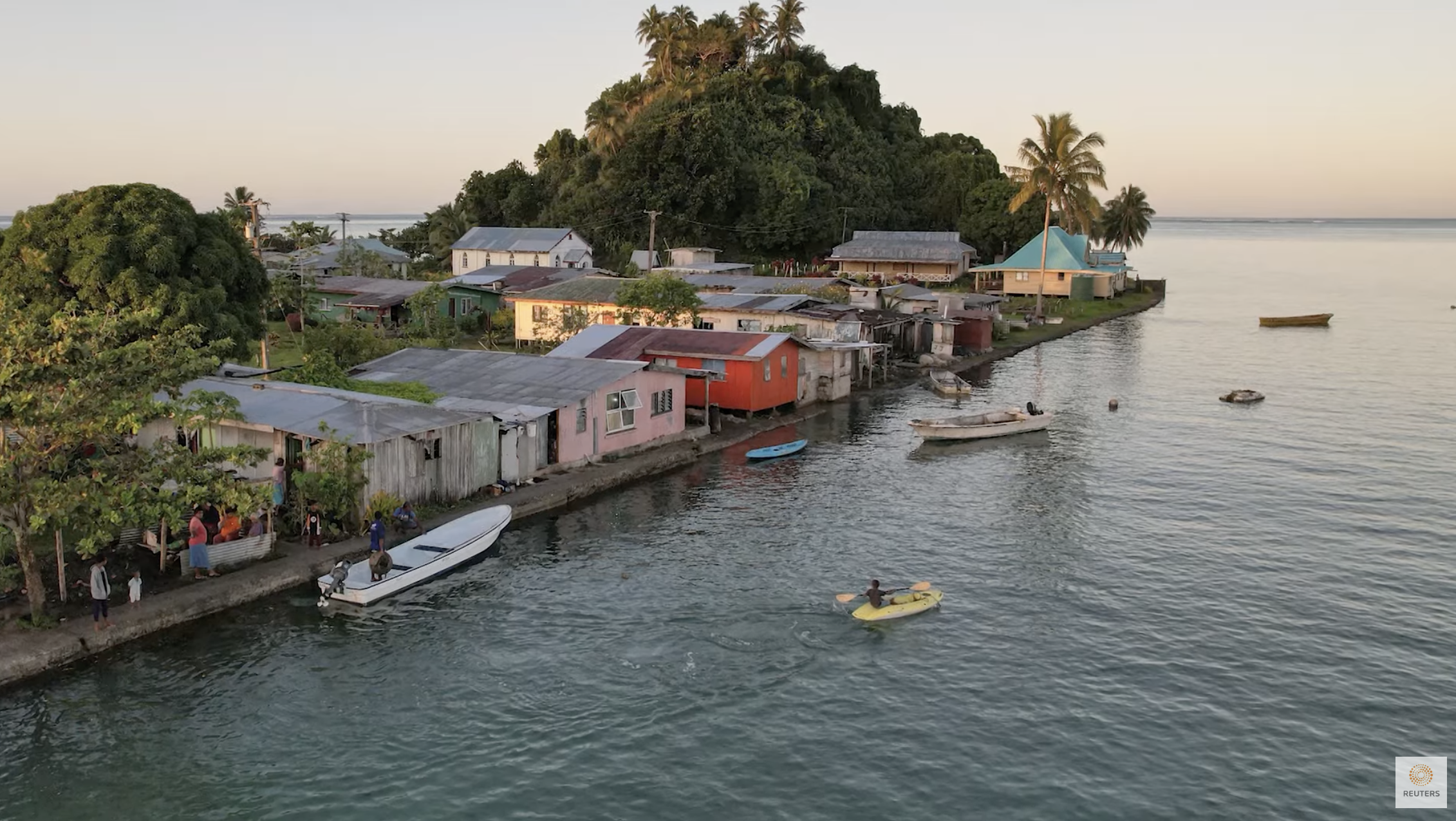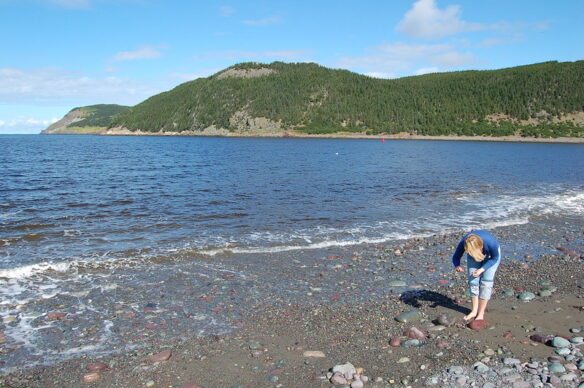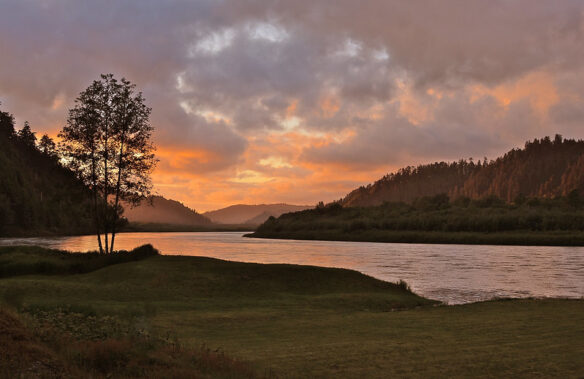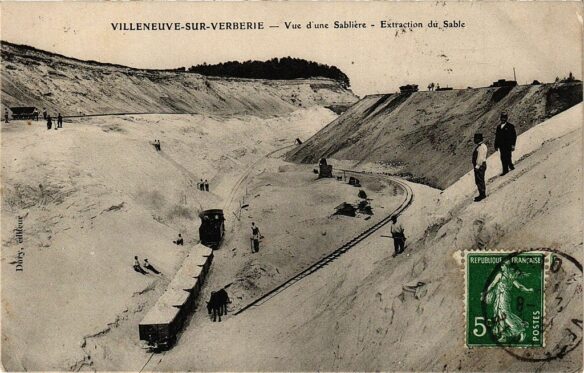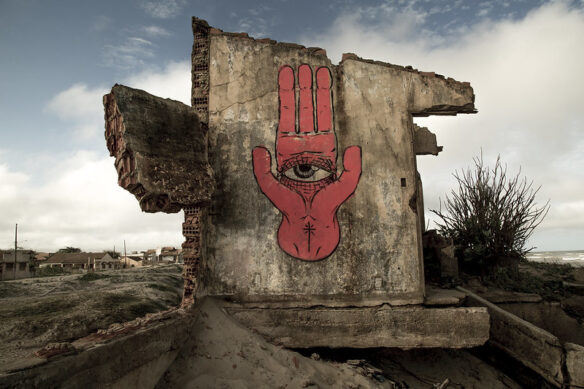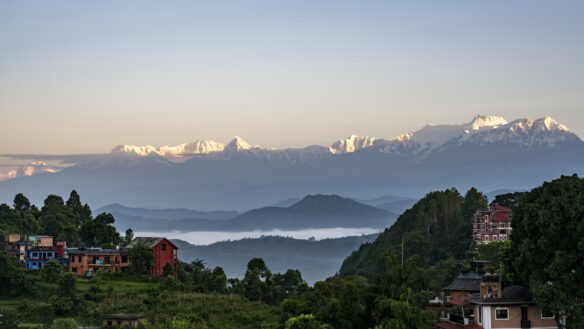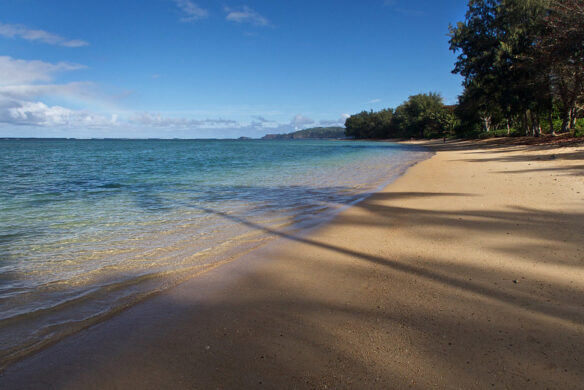Excerpt:
As climate impacts grow, an Indigenous Fijian community weighs what it means to leave.
Salt water is already seeping through gardens, under homes, and among the headstones on Serua Island, Fiji. As climate change rolls on, and as the sea level continues to rise, this low-lying island off the southern coast of Viti Levu, one of the country’s two largest islands, seems like an obvious candidate for relocation efforts—and its inhabitants the latest face of climate refugees. Fiji’s national government has offered its support to help the island’s 100 or so inhabitants move. Yet almost all are choosing to stay put.
The islanders’ unexpected stance paints a compelling picture of a phenomenon researchers are calling voluntary immobility. Their story complicates the common assumption that people want to move in the face of increasing risk and will do so if they can.
“When we talk about climate impacts and relocation, there’s usually this focus on the people who are moving,” says Merewalesi Yee, an Indigenous Fijian and doctoral candidate at Australia’s University of Queensland and lead author of a 2022 paper on the topic. “But there are plenty of people who wish not to move—and they’re almost always overlooked.”
Relocating an entire village is a mess of logistical, legal, and economic considerations. But relocating a community can also have deep social implications. For many Indigenous communities, that’s especially fraught. “For Pacific Islanders,” says Yee, “relocation is not just packing your stuff and moving on to a different place and then it’s a new chapter, new life.”
For Fiji’s Indigenous iTaukei, the connection to ancestral land is a central relationship. Expressed through the concept of vanua—which translates literally as “land,” this deep bond encompasses the interconnectedness of the natural environment, kinship ties, ways of life, values, spirituality, and stewardship responsibilities. “Vanua binds local communities to their land,” writes Yee and her coauthors. “[It] is essential to one’s identity and existence as the core of one’s being and the essence of what it means to be an Indigenous Fijian…”
Additional Article and Video from Reuters:
Rising sea levels are forcing Fiji's villagers to relocate. They want polluters to pay instead
Stay or Flee? Fijians forced to abandon disappearing homes (August 4, 2022):
The village elders of Fiji’s Serua Island are running out of ways to adapt to climate change and the rising Pacific Ocean, facing the painful decision whether to move or stay.

